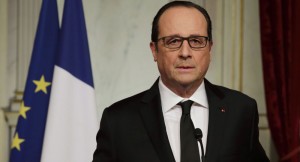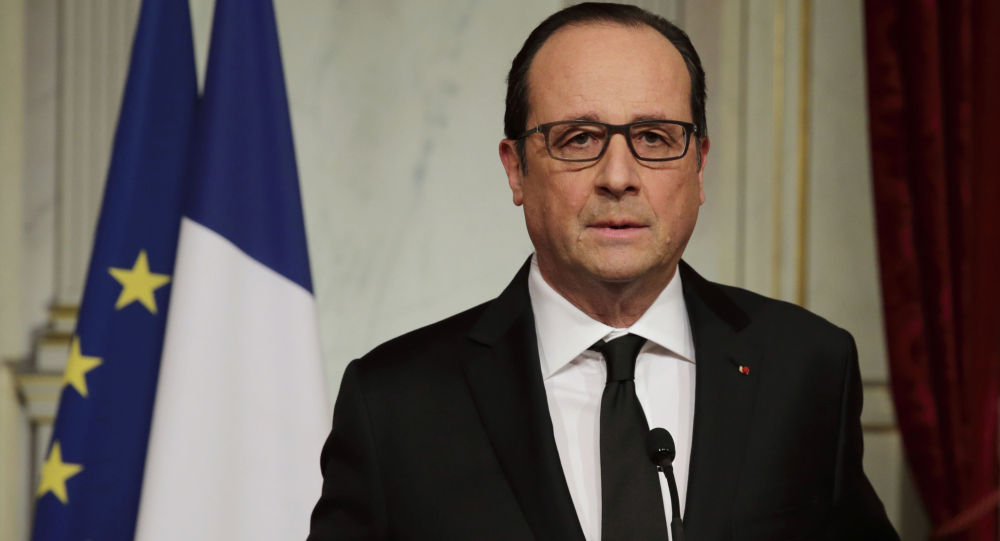
© AP Photo/ Philippe Wojazer
Tuesday 12 April, two prominent advisors for French President Francois Hollande met with officials from six international, French, and Arab rights organizations to discuss the catastrophic situation of human rights in Egypt, where President Hollande is slated to visit next week. The representatives urged the French president to include human rights issues on the agenda of his talks and to make concrete recommendations that adopt the priorities of Egyptian independent rights organizations. One of the organizations said that if in September 2013, when French citizen Eric Lang was killed in a police station in Cairo, the French government had dealt with the Egyptian authorities with the same seriousness and responsibility with which the Italian government is approaching the death of Giulio Regeni, it may have helped to save the lives of dozens of Egyptians and perhaps Regeni himself.
The meeting was held at the Élysée Palace in Paris and attended by Jacques Audibert, President Hollande’s diplomatic advisor; David Cvach, President Hollande’s adviser on the Middle East and North Africa; Bahey eldin Hassan, the director of the Cairo Institute for Human Rights Studies; Karim Lahidji, the president of the International Federation for Human Rights; and Michel Tubiana, the president of the Euro-Mediterranean Human Rights Network, as well as representatives from Amnesty International, Human Rights Watch, and the French Human Rights League.
All of the rights organizations present, with the exception of the French Human Rights League, met last week with several officials in the French Foreign Ministry and discussed the same issues. The request for the second meeting was directed to President Hollande, but he was unable to attend. His aides said he had tasked them with briefing him on the proceedings of the meeting with the rights groups and the recommendations they made.
The meeting addressed the unprecedented deterioration of human rights in Egypt, especially the unlawful detention of tens of thousands of people, including dozens of journalists, rights advocates, academics, writers, doctors, activists, and politicians, as well as rampant, systematic, sometime lethal torture, hundreds of cases of enforced disappearance, extrajudicial killing, the collapse of the judicial system and its cooptation by the security apparatus, and attempts to eliminate Egyptian rights organizations, after international rights groups were forced to shut down their offices and leave the country.
One of the organizations said the situation in Egypt currently is comparable to that in Latin American states under military dictatorships in the 1970s and 80s.
On the sidelines of the meeting, Bahey eldin Hassan said that Egyptian President Abd al-Fattah al-Sisi must take the initiative to meet with independent rights organizations in Egypt to discuss their proposals for addressing the current crisis. Alternatively, President Sisi should invite a politically independent, credible international agency to conduct a genuine fact-finding inquiry into the status of human rights in Egypt and offer recommendations to the Egyptian government to avoid the imminent catastrophe. Hassan said that there is no more worthy body to undertake this task than the UN, adding that he had suggested to UN Secretary-General Ban Ki-moon during a meeting with him three weeks ago, on March 23, in his office at the UN headquarters in New York, that he head this mission.
Share this Post

